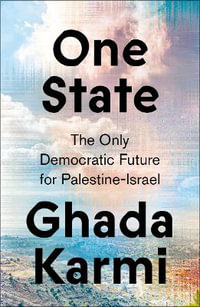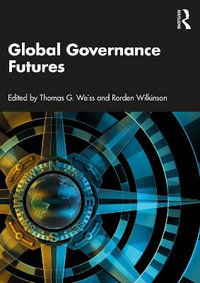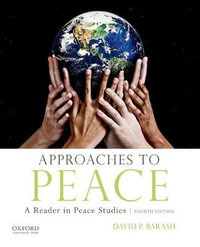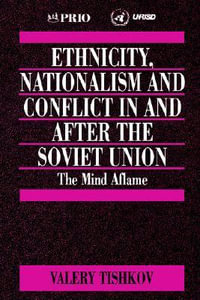
Framing the Nation and Collective Identities
Political Rituals and Cultural Memory of the Twentieth-Century Traumas in Croatia
By: Vjeran PavlakoviÄ? (Editor), Davor PaukoviÄ? (Editor)
Hardcover | 15 May 2019
At a Glance
Hardcover
RRP $284.00
$200.95
29%OFF
Aims to ship in 7 to 10 business days
When will this arrive by?
Enter delivery postcode to estimate
This book analyses top-down and bottom-up strategies of framing the nation and collective identities through commemorative practices relating to events from World War Two and the 1990s `Homeland War' in Croatia. With attention to media representations of commemorative events and opinion poll data, it draws on interviews and participant observation at commemorative events to focus on the speeches of political elites, together with the speeches of opposition politicians and other social actors (such as the Catholic Church, anti-fascist organisations, and war veterans' and victims' organisations) who challenge official narratives. Offering innovative approaches to researching and analysing commemorative practices in post-conflict societies, this examination of a nation's transition from a Yugoslav republic to an independent state - and now the newest member of the European Union - constitutes a unique case study for scholars of cultural memory and identity politics interested in the production, representation and representation of national identities in official narratives.
Industry Reviews
"The example of Croatian commemorative culture, analysed in the collective volume edited by Vjeran Pavlakovic and Davor Paukovic, shows the limits of the European project of reconciliation in post-conflict societies. [It] offers a systematic empirical study of the cultural memory not only of victimhood but also of victory, i.e. of commemorations where the war is celebrated and heroism glorified. [...] The analysis of Croatian cultural memory can serve as a basis for comparative studies in Southeast Europe, a region where European integration has not followed an easy path, in order to investigate a series of questions: under which conditions reconciliation with the 'dark past' is possible; who the memory entrepreneurs in each case are and how efficient the top-down memory politics; how entangled and disputed memories of the major conflicts of the twentieth century have been reshaped, renegotiated, or abused due to dramatic changes and new conflicts which emerged after 1989; how efficiently national commemorative cultures have been accommodated by the EU in its own project of constructing a shared European memory. Finally, in our era of digital revolution, we need to understand how new memory communities are formed through social media and how a kind of global memory culture transcends national borders." Christina Koulouri, Southeastern Europe
"Taken for its individual contributions, the volume presents useful frameworks for evaluating contentious pasts, but as a whole, it paints a broad yet intricately painted image of post-conflict memory. [It] is a great resource for researchers first and foremost of the interdisciplinary field of memory studies and further of sociology, political science, philosophy, and history more generally. Beyond this, memory activists working in post-conflict societies like the former Yugoslavia-perhaps in similarly divided or contested spaces like Northern Ireland, Canada, or the successor states of the Soviet Union, to name but a few-will benefit from this volume through its outlining of state and non-state actors' commemorative strategies." Taylor McConnell, Nationalism and Ethnic Politics
"The volume is effective at demonstrating how the nation and national identity are imagined through political rituals performed at war commemorations. Thus, its goal of creating a methodological tool which can be applied to wider post socialist or post conflict contexts is unquestionably achieved. More than that, this volume provides a great introductory analytical framework for an audience beginning to explore the complexities of the regional clashes over memory. It has undoubtedly proven the operational utility and the potential of databases such as the FRAMNAT project." Dragana Prvulovic, Journal of Contemporary European Studies
"Framing the Nation and Collective Identities highlights Croatia's specific mnemonic legacies of both the Second World War and Titoist Yugoslavia, but also several concerns that the country shares with others-the effects of EU accession and the lasting shadow of (post)communism among them. The volume is an instructive read for anybody interested in memory politics." - Zora Hesova, Comparative Southeast European Studies
ISBN: 9781138504011
ISBN-10: 1138504017
Series: Memory Studies: Global Constellations
Published: 15th May 2019
Format: Hardcover
Language: English
Number of Pages: 260
Audience: College, Tertiary and University
Publisher: Taylor & Francis Ltd
Country of Publication: GB
Dimensions (cm): 23.39 x 15.6 x 1.6
Weight (kg): 0.54
Shipping
| Standard Shipping | Express Shipping | |
|---|---|---|
| Metro postcodes: | $9.99 | $14.95 |
| Regional postcodes: | $9.99 | $14.95 |
| Rural postcodes: | $9.99 | $14.95 |
How to return your order
At Booktopia, we offer hassle-free returns in accordance with our returns policy. If you wish to return an item, please get in touch with Booktopia Customer Care.
Additional postage charges may be applicable.
Defective items
If there is a problem with any of the items received for your order then the Booktopia Customer Care team is ready to assist you.
For more info please visit our Help Centre.
You Can Find This Book In
This product is categorised by
- Non-FictionSociology & AnthropologySociology
- Non-FictionReference, Information & Interdisciplinary SubjectsInterdisciplinary StudiesPeace Studies & Conflict Resolution
- Non-FictionEarth Sciences, Geography, Environment, PlanningGeographyRegional Geography
- Non-FictionPolitics & GovernmentPolitical ActivismArmed Conflicts
- Non-FictionPolitics & GovernmentPolitical Control & FreedomsPolitical Campaigning & Advertising
- Non-FictionSociety & CultureMedia Studies























